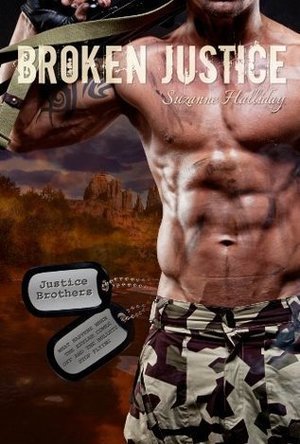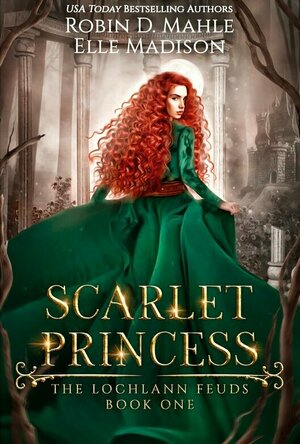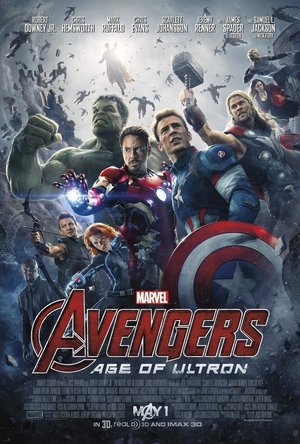
BrainWave: 35 Binaural Series™
Health & Fitness and Lifestyle
App
35 Multi-Stage Binaural Programs Combined with Included Ambient Music, Nature Sounds, or your own...
Lottie disney bookworm (1056 KP) rated Scarlet Princess in Books
Aug 30, 2021
I mean with an opening line like that you know it’s going to be a great book right?!
Regular readers will know I’m a bit of an ElBin fangirl and often devour their books in 1 or 2 days. Scarlet Princess was no exception: I kept my kids fed and held down my full-time job for the day but the rest of the time was spent reading this amazing return into the Lochlann world.
Scarlet Princess is the first in the Lochlann Feuds series which is based approximately 20 years after Autumn’s Reign, the final in the Lochlann Treaty series. However, you don’t have to read the Lochlann Treaty in order to read Scarlet Princess: the world building, plot and characters shine just as brightly for this to be a standalone novel.
“It’s a lotus flower. They’re rare, complex flowers. Difficult to keep alive.”
“That doesn’t sound like anyone I know”
Scarlet Princess introduces us to Rowan, the Princess of Lochlann and her cousin Davin, whom we briefly met in the Lochlann Treaty. The cousins give the impression that they either go looking for trouble, or trouble just finds them! Therefore, it shouldn’t be so surprising that when we meet them, Rowan and Davin are just about to find themselves imprisoned in the neighbouring kingdom of Socair.
Sadly, Socair and Lochlann don’t have the friendliest history so getting home will be no easy feat for the cousins, if they can escape death first.
“Amicable and accommodating, Princess. I wonder if you are capable of either.“
Rowan is, without a doubt, a product of her parents: with her fiery red curls and equally fiery attitude it is easy for us to assume that Rowan takes after her father but then you find yourself internally shouting (or externally- no judgement) “why did you do that?!” and suddenly you see her mother's emotional, impulsive nature.
The smart mouth and the booziness? Well that’s just what makes Rowan, Rowan! And we love her for it!
“Am I boring you Princess Rowan?” He sighed.
“Always”
As Rowan’s journey continues though we see that she has been deeply affected by her parents’ quest for love. Our princess is quite closed off to love and is happy for a marriage to be arranged for her. At her young age Rowan equates love with warring kingdoms, losing children, losing husbands: ultimately, she equates love with loss.
Maybe that is why Rowan hides behind a mask of sarcasm and glib comments, seldom ever facing the reality of her predicament until it is too late.
I didn’t want the kind of love that could break you.
Behind her sarcasm though it is clear Rowan cares deeply about issues such as poverty and equality. She is forced to see that her life is very different in Lochlann, where villagers are not suffering and are looked after by their leaders; women are not seen as quiet mice who need protecting as they are in Socair. Maybe, just maybe, her life in Lochlann wasn’t as bad as she thought? But will Rowan ever see Lochlann again?
Besides, I never had been good at making the smart choice.
The cast of characters surrounding Rowan are equally as amazing as our princess. Davin is a ladies’ man just like his father, Iiro is authoritative one minute but then casually tortures his brother sensibilities the next and Mila is a great friend who comes swooping into Rowan’s life – there is definitely more to Mila than meets the eye though.
Rowan’s escort through Socair and the poor soul on the other end of most of her sarcasm is Lord Theodore, her captor and the heir to the Elk clan. Theo is fair where Rowan is fiery; stoic where she is scandalous and the tension between them …. oof it’s enough to make you swoon!
“You know when something just catches your attention and you can’t explain it?“
I loved revisiting Lochlann only to be immersed in the Kingdom of Socair: the mysterious enemy lurking behind the mountain. The 9 clans created a whole new dynamic from the previous books and the plot arc could have easily got lost within all the clan politics but it flowed beautifully.
All I will say is that I really shouldn’t trust Robin and Elle with happy endings – they will always rip it away with a few chapters to go. These two are the Queens of cliff-hangers!
Grab your copy of Scarlet Princess on August 27th 2021. Devour it in one day and then join me anxiously anticipating the sequel, Tarnished Crown in November 2021.

GoCanvas - Business Forms
Business and Productivity
App
GoCanvas replaces your expensive and inefficient paper business forms with customizable mobile...

Write - Notes & Writing
Productivity and Business
App
Write is an ultimate note taking & writing app. It combines simplicity with powerful features,...

Hopper - Watch & Book Flights
Travel and Reference
App
Save up to 40% on your next flight! Hopper predicts the future of airfare. Watch your next flight in...

Sky Bet - Sports Betting
Sports and Entertainment
App
Sky Bet, sponsors of the Football League, bring you the most advanced sports betting app for the...
Leanne Crabtree (480 KP) rated E.R.A (HayleAnna Rising, #1) in Books
Jan 11, 2021
This sounded rather good so I downloaded it but the more I read, the more I disliked it. That sounds bad but when I generally enjoy almost 95% of books I read, I think it's fair. It might be because it was self published and needed a really, really good proof read and edit as the amount of misspellings and simple errors drove me mad.
So this starts with HayleAnna waking up for her first day of training to join E.R.A - America's army of the future - so she can follow in her dads footsteps. She meets the trainers, a group of five, and makes friends with her roomie, AZ, before embarking on her schedule of training throughout the days and weeks so she can help stop the crazy madman who is trying to rule America after the government collapsed a handful of decades ago.
I had a couple of other issues with this book, just simple things I didn't understand.
One: Her name is HayleAnna but everyone calls her Anna. Surely Hayle with it coming first would be her shortened form?
Two: The romance. I didn't buy it. One minute they're sharing looks and winks and then the next they're pretty much dating and getting married?
Three: The continual use of the word "setting" instead of "sitting". "Setting up in the bed..." Maybe it's because I'm British but that made no sense to me. I set an object down but I sit down.
And four: I felt like I missed something in that 61%. She leaves the training completely to go see her mum amid a possible threat, but when her birthday rolls around everyone from the training is there wishing her well, including the instructors who told her she would be kicked from the program if she left? And then she actually gets a place with E.R.A?
WTF?
That was about the point where I gave up with the story. It wasn't making sense to me anymore. None of it was. I didn't buy the romance between the characters, either, and I wasn't a fan of the explained conversations without having it written in full.
It did have a promising storyline and I'm sure if the authors gave it a full proper once over that it has the potential to be a good book but currently I really wasn't feeling it at all.
Heather Cranmer (2721 KP) rated Girls with Sharp Sticks (Girls with Sharp Sticks #1) in Books
Oct 19, 2022
Philomena aka Mena is one of the beautiful girls. In fact, all the girls at her all girls boarding school are beautiful. They are taught how to behave. They're only allowed salads for food, and their classes focus more on etiquette and how to act in male company. They are all fully obedient until one day something awakens in Mena. She realizes that not all is as it seems at her boarding school. Something sinister is going on, and Mena will do anything to find out to protect her friends.
The plot of Girls with Sharp Sticks has been done before. In fact, much of the plot reminded me so much of the 2018 film Level 16 with a few differences. However, I still really enjoyed the plot. While one of the major plot twists became obvious to me about halfway through the book, there were still a few plot twists that I never would have predicted. Throughout my reading of this book, I felt like I was standing right there in the pages watching everything unfold. Yes, there were some over the top things that happened in the story, but this didn't put me off. I loved that this novel didn't have much romance in it. There is a very light romance though.
I very much enjoyed the creepy boarding school setting with it's very strict teachers (the majority of them male). As this is a series, there is a minor cliff hanger, but I feel like this book can be read without having to read the other books in the series unless you want to know what happens afterwards. You could just read Girls with Sharp Sticks and leave it with the happyish ending though if you really wanted to.
I enjoyed reading about all the characters even the vile ones. Mena certainly was an interesting character with her thought process and how fearless she was. Her curiosity did get her in trouble from time to time, but she persevered to get to the bottom of what was happening at her school in order to protect her friends. Guardian Bose was easy to hate because of how horrible he treated the girls. I just wanted him to go away because he was so mean! I had a love hate relationship with Anton. On one hand, I felt that he cared about the girls in his own way, but I knew he was not to be trusted at all. Jackson had an interesting back story, but after learning his back story, I was left wanting to know more about him. My favorite character throughout the book was Valentine. There was just something about her. In my mind, I had pictured her a a beautiful frail girl, but looks can be deceiving! I was hoping we'd get to read more about her throughout the book than what we did. Valentine was the best part of the book in my opinion.
Trigger warnings for Girls with Sharp Sticks include profanity, blackmail, brainwashing, violence, mentions of sexual assault, and murder.
All in all, Girls with Sharp Sticks is an engrossing read with its interesting character and a plot that will have you cheering on the young women as they try to figure out what's going on at their school. I would definitely recommend Girls with Sharp Sticks by Suzanne Young to those ages 16+ who are sick of being told what to do by the patriarchy.
Phillip McSween (751 KP) rated Avengers: Age of Ultron (2015) in Movies
Jun 26, 2019
Acting: 10
Beginning: 10
As most MCU (Marvel Cinematic Universe) films tend to do, Avengers: Age of Ultron gets off to a really quick start wasting no time with action. Everyone gets a piece in the first ten minutes and they're working even better together than they did in the first film. While Hulk (Mark Ruffalo) and Thor (Chris Hemsworth) flex their muscle and rip tanks in half, Hawkeye Jeremy Renner) pierces through dudes like the modern-day Legolas.
Characters: 10
A part of what works so well for these characters is how grossly different their backstories and personalities are. Hawkeye is a family man that uses humor to mask his annoyance in certain situations. Tony Stark (Robert Downey Jr.) is constantly pushing the boundary envelope and acts superior to the ideas and thoughts of the rest of the group. Normally you hate a guy like this but he wears the hat so well. Throw in Vision, a benevolent AI with a sense of purpose, and the rest of the crew and you have a pretty solid character-base.
AI of the hour Ultron (James Spader) is a villain with a surprising amount of depth. He fights for his own cause which, in his mind, is the only necessary option for balance and preservation. His smooth, even-keeled voice can be chilling at times making for some pretty solid scenes.
Cinematography/Visuals: 10
Conflict: 10
There is enough action in the film for two films. The plot steamrolls into new scenes of combat, one after the next. Dull moments are nonexistent. There is something about having all of these characters on the screen at the same time that keeps the film exciting and fresh. Teamups are especially cool, watching pairs like Captain America (Chris Evans) and Thor perform unique combo moves. You want eye candy? The film delivers.
Genre: 8
Not the best superhero film I've seen, although I believe that says more about the emergence of the genre than the film itself. This century has ushered in some phenomenal superhero movies that do the genre proud, including ones that set themselves apart by having enriched characters and deeper meaning. Age of Ultron is solid, but falls just slightly out of the Cream of the Crop territory.
Memorability: 9
The action sequences alone played throughout my mind well after having watched the film. Among other things, Age of Ultron gives you a falling city along with a classic matchup between Hulk and Stark in the Hulkbuster suit. Perhaps the most memorable part came at the very end when Ultron and Vision are having a conversation about the fate of humanity. Part foreshadowing, part introspection, it was a very fitting way to bring the curtain down on the action.
Pace: 10
Plot: 9
Resolution: 8
Overall: 94
No, it's not the best MCU film made to date, but it's still a high-quality film with a solid story and memorable sequences that keep you glued to your seat. Thankful for the rewatch as I enjoyed it even more the second time around.

Broken Justice
Book
Cameron Justice- former Special Forces Veteran and now working along side his Justice Brothers Alex...
justicebrothers familyjustice4life suzannehalliday



